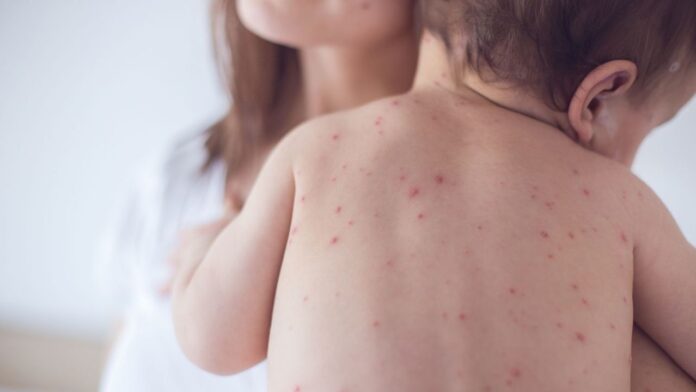Measles, a highly contagious viral infection, can be effectively prevented with vaccination, particularly among children. However, during pandemic years, a significant number of children missed their measles vaccine doses. According to the World Health Organization (WHO), in 2022, an estimated 11 lakh children in India missed their first dose of the measles vaccine, placing the country among the top ten nations with the highest measles vaccination gaps, even post-pandemic. To curb the spread and prevent future outbreaks, it is crucial to raise awareness about measles symptoms, provide appropriate supportive care, and promote vaccination.
In recent months, Madhya Pradesh has been facing a troubling outbreak of measles. The symptoms of measles typically initiate with common cold-like signs, such as fever, runny nose, cough, and red, watery eyes. However, a distinguishing feature of measles is the development of a red, blotchy rash that starts on the face and then spreads across the body. This rash usually appears a few days after the initial symptoms and may last up to a week. Other symptoms include fatigue, loss of appetite, muscle aches, and sore throat.
While there is no specific antiviral treatment for measles, supportive care can help alleviate symptoms and prevent complications. Treatment measures include:
- Bed rest: Resting aids the body in combating the infection and facilitates a quicker recovery.
- Hydration: Consuming ample fluids, such as water, juice, or electrolyte solutions, helps prevent dehydration, particularly if there is fever or diarrhea.
- Fever reducers: Over-the-counter medications like acetaminophen or ibuprofen can help reduce fever and ease discomfort. It’s essential to avoid aspirin in children due to the risk of Reye’s syndrome.
- Vitamin A: In areas where vitamin A deficiency is prevalent, supplementation with vitamin A has been shown to reduce the severity and risk of complications from measles.
- Isolation: Infected individuals should be isolated to prevent the virus from spreading, especially to those who are unvaccinated or immunocompromised.
Addressing the measles vaccination gap and implementing preventive measures are crucial in safeguarding public health and minimizing the impact of measles outbreaks.

 हिंदी
हिंदी






